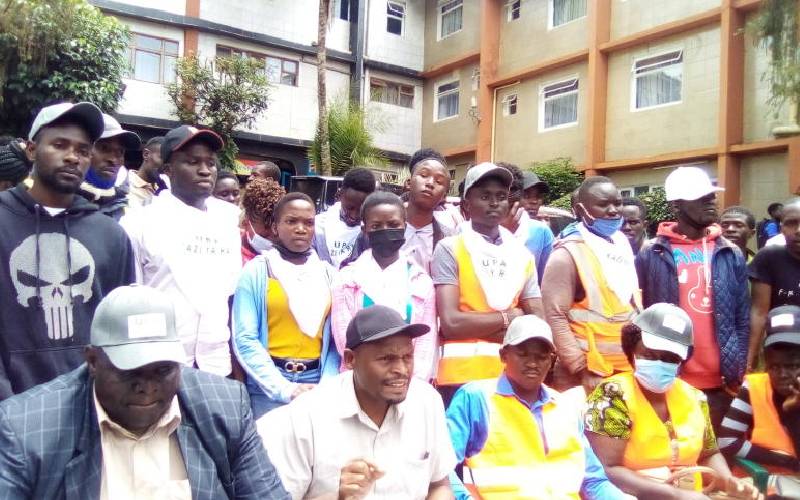×
The Standard e-Paper
Join Thousands Daily

United Progressive Alliance Party Acting Secretary General John Obwocha(Second left) accompanied by Kisii Central MCA Kepher Mogaka(left) with other party supporters in Kisii Town on October 21, 2021. [Edwin Nyarangi,Standard]
The launch of the United Progressive Alliance (UPA) party has lifted the lead on a ploy by politicians to force bigger parties to the negotiating table ahead of the 2022 elections.